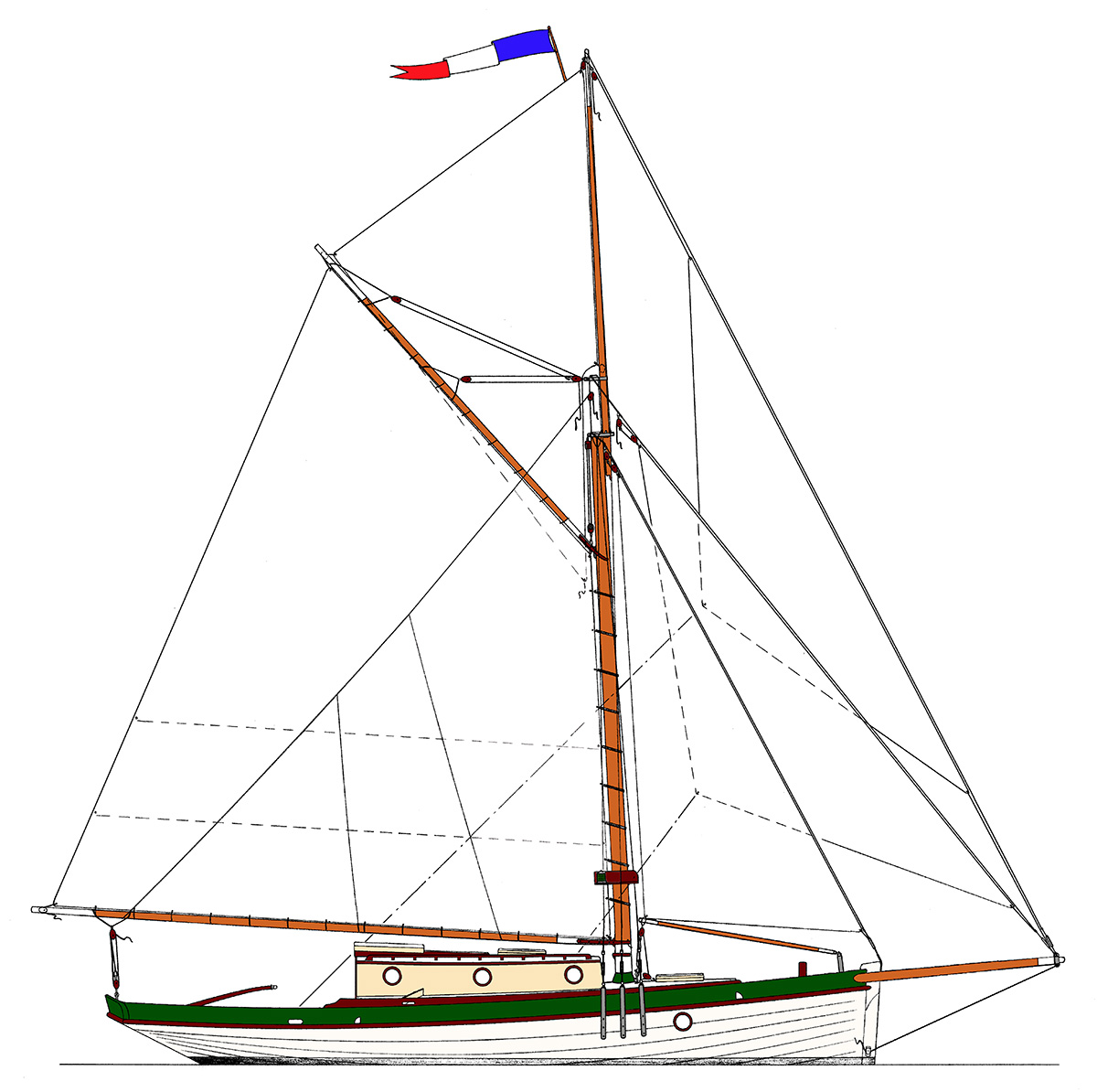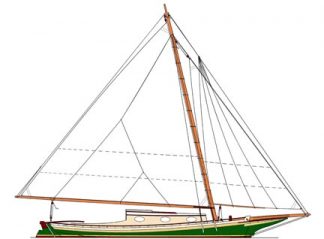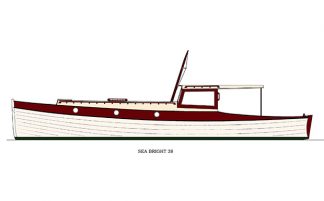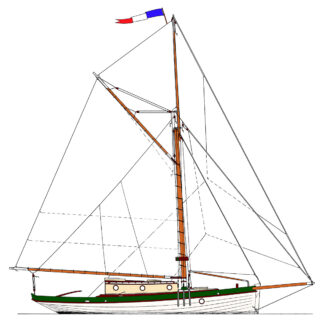Description
L.O.A. 31’ ½”
L.B.P. 30’ 11 ½”
L.O.D. 29’ 9 5/8’’
L.W.L. 26’ 4 ½”
LENGTH EXTREME 41’ 4”
BEAM 10’
DRAFT 4’ 1”
SAIL AREA 658 sq. ft.
DISP. 10,250 lbs (approximate, for cruising)
BALLAST 3,750 lbs lead, inside, and water.
TYPE British Pilot Boat, pocket cruiser, based on the earliest types (late 18th/early 19th century). This vessel is intended for open ocean cruising. The model has 6’ 2” of headroom in the cabin. A large berth forward can be slept in fore and aft or athwartships.
RIG Gaff-rigged cutter, stayed mast. The hull is based on the Swansea pilots, chosen for power, versatility, safety at sea, maneuverability and low cost. The bowsprit can be housed and the boom shifted inboard to reduce dockside length. The rig is excellent for single-handing.
CONSTRUCTION Lapstrake cold-molded plywood/epoxy covered with epoxy-impregnated Xynole-polyester cloth. The hull is planked with 3/4” x 10” full-length planks (scarfed). Alternate construction is strip-planking with milled “cup & cove” softwood. Decks are ½” ply; bulkheads are 5/8” ply. Spars are Douglas fir.
COMMENTS The Swansea Pilot Boats appear to be miniature Virginia Pilot Schooners. Both derive their ancestry from the Dutch rig. The original hullform was the shallop. I designed a cutter rig for the Swansea hull as an alternative to the original schooner—virtually all other British Isles pilot boats were cutter rigged. A long-shaft outboard can be used on a transom well, or an inboard installed under the bridge deck and cockpit well. The propeller should be of a feathering type, like a Max Prop.
FULL-SIZE PATTERNS AVAILABLE for the lapstrake hull—NO LOFTING!






Reviews
There are no reviews yet.